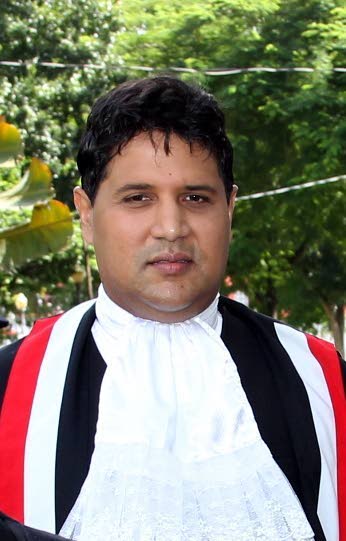Retired public servant's estate to get outstanding benefits

TWENTY years after he retired, the estate of a Ministry of Labour clerk is expected to receive his outstanding retirement benefits.
In a ruling on April 23, Justice Frank Seepersad was highly critical of the delay.
“All the delays which occurred in this case were excessive, unreasonable and outrageous and they resulted in a circumstance where the deceased was denied the protection of the law.”
The judge had been asked to grant several declarations sought by Cheryl Davis, the widow of Horace Davis, who sought payment of his outstanding emoluments.
Horace Davis died on September 24, 2015, and had retired in 2004 from the civil service.
In 2018, the comptroller of accounts in the Ministry of Finance advised of the benefits owed to Davis. In 2022, Davis’s attorney asked for the outstanding sum owed to the estate. The figure of $323,086 was subject to the auditor general’s approval and a request made for the ministry to get the President’s advice, given that Davis had a previous conviction.
In 1989, Davis had been interdicted for larceny and was convicted and fined $1,000 by a court.
During his interdiction, the Public Service Commission suspended him with a three-quarter salary and after his conviction, his salary was stopped.
However, according to the court’s ruling, in 2004, he was allowed to voluntarily retire from the public service, effective October 18, 2004. When this happened, the commission decided to take no further action in the disciplinary matter against him.
In his ruling, Seepersad said there was no explanation for the delay in paying the outstanding emoluments. He said from the procedural history of the case, there were four “significant and unexplained” periods of delay.
“The law and basic fairness require that the computation of pensions and gratuity should be engaged in a timely manner and at least three months before an officer’s retirement.
“The laissez-faire approach and inefficiency which this matter has revealed is alarming,” the judge said,
He also said by 2005, it should have been “patently obvious” that Davis was no longer the subject of any disciplinary matter and the ministry should have “promptly” ensured the payment of applicable benefits after receiving the necessary information on what was owed.
“The tragedy meted out to the deceased and his estate is compounded by the seeming absence of accountability which is manifest within the public service.
“In this court, this manner of arbitrary conduct cannot be condoned and will be called out.”
He added, “The court is now inundated with administrative-law matters which are primarily premised upon assertions that statutory obligations have not been discharged by various public officers.
“At some point, efficiency concerning the discharge of statutory obligations has to be prioritised.”
He said the facts in the case demonstrated there was a need to visit the existing constitutional framework and revamp and modernise administrative functions in the public sector.
“It is imperative that the efficacy of the public service should be analysed and an evaluation should be engaged to ascertain whether the current inherited colonial public-sector framework is relevant, given the current size and nature of the public service.
“The task at hand may also require the implementation of digital infrastructure to enable the seamless flow of information across the various administrative arms of the State and a reorientation of perspective, as a service-minded culture and a desire to be disciplined and productive has to be embraced by all who discharge responsibilities under the umbrella of the public service.”
He was also critical of the “apparent failure” of two presidents to respond to the request for advice on Davis’s entitlement, although he did acknowledge that the Office of the President was not heard in the matter.
However, he said, “Is most unfortunate, difficult to comprehend and is a cause of concern.”
In his ruling, Seepersad declared that the slow approach by the state agencies to determine Davis’ outstanding benefits had contravened his estate’s rights and also declared that the ministry failed to act efficiently and reasonably to engage the required processes to ensure that the former clerk receive what was owed to him when he voluntarily retired.
He also held that the decision to refer the matter to the President was unnecessary and unreasonable and ordered the ministry and the comptroller to verify, within 28 days, what was now due and owing to Davis.
He also ordered the Attorney General to pay Davis’ estate $15,000 in vindicatory damages for the “substantial delays” which, he said, cannot be tolerated as they do not “accord with the need for good administration.”
Davis’s estate was represented by attorneys Arden Williams, Mariah Ramrattan and Don-Marie Adolphe. Nairob Smart and Mary Davis appeared for the AG, the ministry and the comptroller of accounts.

Comments
"Retired public servant’s estate to get outstanding benefits"